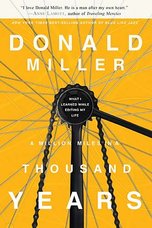 I’m twenty-seven years old, and still tell people I want to be a writer when I grow up. Like any dream, that won’t happen overnight; it’s something I’ve been working diligently toward for years.
In graduate school, I began to blog seriously. February, 2011, found me tying the bow on my biggest writing challenge yet: finishing my first book. Over a year later, March, 2012, I dedicated myself, for an entire month, to taking three crucial steps toward getting that book published: finishing all peer-edits, completing one final read-through myself, and beginning the process of contacting publishers.
Needless to say, March has been busy, and I’m afraid I bit off more than I could chew. Peer-edits on my book, courtesy of my good friend Jarrod Sherman, were completed over the first weekend of March. I’ve spent the remainder of the month in my little apartment, reading through every single word I’d written. Two days ago, I finished that final read-through, making quite a number of changes along the way.
When Donald Miller began to edit his life (for a film), he was inspired to write a sensational book, A Million Miles in a Thousand Years. (Seriously, go read it.) As I edited my life – the story of how God turned my life upside down through a road trip – I just got migraines. Life’s not always fair.
It’s the last day of March, and the giant of getting published looms large ahead of me. Thirty-one days ago, I had no idea that rereading my book would take so long, but here we are, on the cusp of April. It’s not always been pretty, but if I’ve learned anything through this arduous editing process, it’s been to never give up; to keep moving; to run right through the wall.
So March’s dare is being extended. Join me throughout the month of April as I try to conquer that last, and most difficult step – publishing.
And let me end by saying, THANK YOU, THANK YOU, THANK YOU, to everyone whose taken time to read the excerpts of my book and offer such positive and encouraging feedback. When my head’s pounding, and I don’t think I can write another word, you help keep me going. Your belief in this crazy idea humbles me to the core. I hope one day to personally hand each of you a copy of I Repent – I’ll keep my fingers crossed, if you will too.
See ya in April!
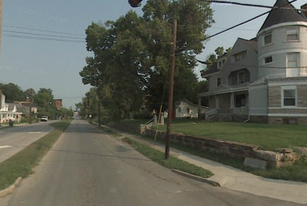 It is finished.
Since the first week of March, I’ve been wading, for one last time, through each page of my book. I’ve reread the entire thing, made numerous corrections, updated information, and spent hours trying to pinpoint the precise word and message I wanted to get across. Last night, a little after 1:00AM, that long and oftentimes arduous process finally came to an end as I put the finishing touches on chapter 8, titled “Its Okay to be Wrong (It Takes a Village)” and the epilogue, “On the Shoulders of Giants.”
A few months are returning home from my road trip, I was among a handful of friends who moved into a historic (but uncared for) home on Loudon Avenue. Our goal was to form an intentional Christian community, much like the Simple Way, a group of believers living together to bring the gospel to inner city Philadelphia. After reading about this “new monasticism” in books like Shane Claiborne’s Irresistible Revolution, we were set on fire to begin. What started strong, though, was struggling to survive only a few months later. I’m proud to say that this community persevered through very trying times, and although family circumstances took me away from it, a few members still continue to pursue this dream.
Sharing a house with five other people taught me a very important lesson, one that is integral to living a life of repentance: it’s okay to be wrong. Clearing the way for the Messiah, John the Baptist (one of my favorite Bible characters) preached a simple message, “turn to God and change the way you think and act.” If we ever needed a definition for “repentance,” John’s message would be it. This process, turning to God and changing the way I think and act, inspired me to write I Repent. While on a road trip, God showed me portions of my life where I was thinking or living incorrectly; it was at this point, when I recognized my faults, that I was able to truly repent, the way John the Baptist taught us. The first step to being changed was admitting, and owning, the parts of my life that were out of sync with the Creator.
Below is a short, unedited excerpt from my book’s final, full chapter – “Its Okay to be Wrong.” With my read-through completed, I’m finally ready to pursue publishing, which means this challenge is far from over.
"I’ve grown weary of hearing Christians preach that our faith is under attack;
That there is an anti-Christ agenda being force-fed to America,
Lead either by the president, popular culture or the anti-Christ himself (or all three).
I can’t say that I believe we are under an attack,
But I do recognize that our society does not value what Jesus valued.
The Bible teaches that apart from Christ, we cannot please God.
Likewise, it would be ignorant to assume that our culture can be pleasing to God
Since it does not know Jesus.
I don’t believe we are under attack; I believe that culture is lost
And will not be found until Christ’s kingdom is firmly established on earth.
One of the most dangerous, and subtle, lessons our lost culture teaches
Is that it’s not acceptable to be wrong.
Companies will endanger their own customers and employees
In order to avoid the shame of recalling their products.
As the Gulf oil disaster unfolded, blame for the destruction was passed
From BP to the company who produced the oil rig to the federal government.
Our culture will go to great lengths in order to prove that they were not wrong.
When I was going through graduate school to earn my high school teaching certification,
I remember on numerous occasions being taught by my educators
To never tell a student that he or she was wrong.
Instead we were to say “nice try” or “that’s a good thought.”
There is something very dangerous about this.
If a student is never wrong, then that student is in danger of never learning.
As a teacher, if I ask the class what the capital of America is,
And they answer “yellow,”
My response of “nice try” or “that’s a good idea” teaches them nothing.
A student that honesty thinks the capital of America is “yellow,”
Must first be convinced that their thinking is wrong,
Before they can learn the correct answer and replace “yellow” with “Washington, DC.”
That may be an extreme example, but consider our day-to-day lives.
If we are never wrong,
Then we will never learn.
Our thinking,
Growing,
And maturing,
Will cease.
Admitting that we are wrong is the first step toward freedom."
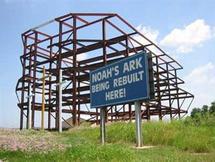 I’m beginning to see the finish line – at least in regards to completing my book’s final read-through.
Tonight, I was able to put another section behind me, chapter seven, entitled “Lexington (Where Everybody Knows Your Name).” In chapter one of my book, I discussed how God convicted me of my bad habit of judging – pinning names on others without knowing them or their background. The last full chapter of my book, “Lexington” discusses a similar issue: what to do with others attempt to name us. It all comes down to identity – will I be who society tells me I am, or will I choose to believe Christ when He tells me I am a part of His family? The answer seems all too easy, but nothing is harder than living into that reality, day-in and day-out.
Interspersed between my thoughts on identity is the story of my road trip’s triumphant return home, including the man we passed in Maryland who was busy constructing a full-scale replica of Noah’s Ark beside the interstate. Sometimes the truth is stranger than fiction.
Included below is a short, unedited excerpt from “Lexington” in which I discuss that highway boat builder. Hope you enjoy it!
If You Build It...
"I awoke from my nap in time to see Noah’s ark.
For real.
Sort of.
Somewhere along the highway, as we traveled through Maryland,
A guy was building a full-scale replica of the Biblical boat with epic proportions.
By my estimation he couldn’t have been more than one-fourth of the way through this project,
And already, this boat was pretty imposing.
(Interestingly, about a month ago, plans were unveiled for a Noah’s Ark themed amusement park
To be opened in northern Kentucky, about an hour from my home.
The main attraction for the park?
A life-sized model of the ark.
I wonder if they contracted the work out to the guy from the side of the road in Maryland?)
I’m not sure if our Noah was commissioned by God to build his interstate straddling boat.
Likewise, I can’t speak to the inspiration behind the Ark Encounter theme park.
(I do, however, find it hard to believe that Jesus needs rides and funnel cake to reach the masses.)
One thing I do know:
Since the announcement of the plans to build this biblical theme park,
There has been no shortage of criticism from many local community members and civic leaders.
If people ridiculed the original Noah,
Then I’m sure guy-on-the-side-of-the-road-in-Maryland has also received his fair share of abuse.
To be fair, my own initial response to his project was mockery.
But, now, I find myself hoping that he is still building his ark.
In fact, I am starting to find that God has all of his children building “arks.”
The life that Christ calls us to was not designed to be easy.
In fact, He promises that his followers would be mocked, ridiculed, and even killed.
Just as the Savior called a dead man, Lazarus, out of the tomb,
He calls us to step out of our cultural norms:
To love and not hate,
To forgive and not loathe,
To give away and not store up.
Following Christ almost promises ridicule and scorn from others,
For to love, forgive and give away in our society looks as strange
As a man building a boat by hand,
Hundreds of miles away from the ocean.
As the weeks passed by after our return home,
I began to have the feeling that it was now or never.
God was calling.
It was time for a reexamination of life,
It was time for repentance.
The rain clouds were gathering,
It was time to start building my ark."
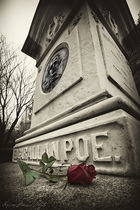 A chai tea latte, and an hour at Starbucks this morning, brought me to the end of yet another chapter in my book’s final read-through. Entitled “Baltimore (The Good Earth),” this section covers a topic near and dear to my heart: creation care. According to my parents, environmental sustainability was something I was championing long before I could even pronounce those words. My father loves to tell the story of how, as a kindergarten student, I scolded him for leaving the water running as he brushed his teeth. Too much Captain Planet had created a monster. Once viewed suspiciously by Christians, it’s refreshing and exciting to finally see the people of God slowly begin to embrace environmentalism; I hope this portion of my book can serve as a primer for Christ followers who have yet to become fully engaged in the green movement. After presenting an in-depth look at the Biblical mandate for creation care, this chapter offers insight into global warming, the modern industrial food system and the idea of going green as a means of pursuing justice for the global poor. Interspersed are tales of my road trip stop in Baltimore: visiting the National Aquarium, stopping at Camden Yard, stumbling upon Babe Ruth’s boyhood home, and holding vigil at the grave of Edgar Allan Poe. Easily one of my favorite chapters, I’m eager to hear others feedback on an issue that I care deeply about. Until then, here’s a pre-final read-through excerpt for you from chapter 6, “Baltimore (The Good Eart h)."
BP "Fast forward to the summer of 2010.
I, like much of the country, watched powerlessly as untold amounts of BP oil spilled,
Wreaking havoc on the Gulf of Mexico.
As the days passed, the oil continued to leak.
And leak.
And leak.
I was enraged.
I began an immediate boycott of BP gas stations
And kept daily tabs on how the catastrophe was being handled.
A news story about how booms, made of human hair, could be used to soak up oil
Had me prepared to shave my head.
With each passing day, the public outcry seemed to grow louder.
My voice was among so many others calling for the corporation’s crucifixion.
It was at this most inopportune time that I heard the words of Christ echo through time:
“He who is without sin, cast the first stone.”
I don’t know which made the louder sound as it came crashing to the ground,
The stone I held in my hand
Or my pride.
Why was BP drilling for oil in the Gulf of Mexico?
Because of our world’s addiction to fossil fuels –
And on a more personal level,
Because of my addiction to fossil fuels.
Since sixteen years of age I’ve been driving a car.
For ten years it has been, for all intents and purposes, my exclusive means of transportation.
Much of the money I have made has gone to purchasing gasoline,
Especially as the prices have continued to increase.
If I’m honest with myself I can’t place all the blame for the spill on BP.
They were fulfilling an order that I placed every time I chose to drive my car.
They were doing the dirty work that my oil addiction required of them.
Some studies are suggesting that the negligence of BP may have resulted
In the explosion and subsequent leak from the deep water drilling rig;
For this the company is responsible.
At the same time I cannot escape the fact that I am, at least in part,
Also at fault for the destruction of the gulf.
When I choose to drive instead of walking or riding a bicycle,
I am feeding an industry that is destroying the planet God created for us.
There is no other way around this issue
And it does not end with oil.
The mountains of eastern Kentucky are among my favorite of God’s handiwork.
Their rolling, tree covered peaks have birthed true Kentucky treasures:
Bluegrass music,
Storytelling,
Moonshine,
And the most hardworking, loving people I have ever met.
Unfortunately these mountains also contain something quite valuable: coal.
To this day, the vast majority of American electricity is produced from burning this black rock.
As is the case with the combustion of other fossil fuels, like gasoline and natural gas,
Burning coal to create electricity releases pollutants that create smog,
Lead to acid rain
And add to the greenhouse effect.
A new method of mining coal, known as Mountain Top Removal,
Has gripped and threatens to strangle the Appalachian region of Kentucky and West Virginia.
Traditional coal mining involves digging into the side of a mountain and bringing the coal out.
Mountain Top Removal shortens this process dramatically;
Using powerful explosives, the mountains are literally blown away to expose the coal below.
Mountain top removal is becoming the favored method of coal extraction because it is quick
And employs a much smaller work force than traditional mining,
Allowing coal corporations to maximize their profits.
Apart from permanently destroying some of the most magnificent works of the Creator,
Mountain top removal results in an unfathomable amount of damage.
Mudslides, the pollution of drinking water, the decline of air quality and the loss of wildlife
Are only a few of the results of this dangerous practice.
And while a force is rising up in Appalachia to call for an end to this brutality,
It continues to this day because the majority of us have not demanded otherwise.
Our society takes electricity for granted.
We expect it to always be available while forgetting what it takes to be produced.
As long as we demand increasing amounts of energy to power our lives,
More Kentucky mountains will be leveled.
Electricity from coal is also cheap.
As long as price is the bottom line, the mountains of my home state are in danger,
And I, myself, am at fault.
As a believer, if I claim to value the creation of God,
Then I must change my behavior to reflect that fact.
Cars are an integral part of our society and will remain so.
I am not necessarily calling for Christ’s followers to never sit behind the wheel again;
I know this will not be true of my own life.
But I do hope, because we understand the value of the created world,
That Christians will think twice about how their decisions affect creation.
Sometimes driving is required.
But, perhaps, there are times when I could walk to my destination
Or ride a bicycle.
In the winter months, I could carpool or use public transportation.
There is a popular local musician where I live
Who makes some of the most amazing sounds come from his cello.
Because he cares about the environment, he has started touring on his bicycle.
He straps the cello to the side and rides from town to town.
To my knowledge, this musician is not a Christ-follower,
And yet he has made life altering decisions to protect the planet.
How much more, then, should those of us who claim to know the Creator,
Care for His creation?
Electricity itself is not evil; I cannot imagine our lives without it.
Instead of forgoing it altogether, perhaps Christians should consider how much they use.
Simply unplugging appliances like cell phone chargers and TVs,
Turning off unneeded lights,
Or setting the thermostat a little higher in the summer and a little lower in the winter
Result in less demand for electricity
Which in turn means less coal burning,
Leading to less pollution and the salvation of some ancient mountains.
Kentucky’s homegrown prophet, Wendell Berry,
Has written numerous essays on the topics of local economies,
The need for new sources of power,
And the defense of the natural world.
While I have learned to love Mr. Berry for his articulate words and precise arguments,
I have grown to respect him for practicing what he preaches.
Aware of the fact that most electricity in our home state
Comes from burning coal obtained through mountain top removal,
Mr. Berry writes his essays by hand during the daylight hours.
By not using electricity in the pursuit of his career of writing,
He ensures that his well-being does not come at the expense of others or the creation.
For most of us, it will be unrealistic to make such drastic changes as not using electricity
Or only commuting by bicycle,
And that is okay.
It would be near impossible to try to change an entire life overnight,
But, realizing that we must change,
We start small.
Be creative.
Determine how you can show appreciation for the Creator and then follow through with it.
Make it an act of worship.
Cynicism may try to convince us otherwise,
But small changes are important
And they do add up.
The followers of Christ have been silent on this issue for far too long.
Out of love for our Creator, we should be leading the green movement.
In fact, our own lives,
The lives of countless others
And the honor of our Creator all depend upon it.
At the beginning of time God called his creation good;
May our lives prove that we still believe Him."
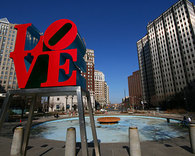 The beginning of a race is exciting – the runners lined up together, anxiously awaiting the signal that will send them barreling toward their goal. Those first few meters are the most important of the race, with runners jockeying for position within the pack. Its exhilarating, an adrenaline rush that can propel you for miles.
Of course, the end of a race is everyone’s favorite – that time when months of training finally pay off. You dared to believe in yourself, and with those last few steps, your faith is proved true. The feeling of accomplishment you get crossing over that finish line is near impossible to put into words.
But no one loves the middle of a race – sweat dripping down your face, legs and side cramping, with a miles still to go. Fatigue and discouragement creep to the surface as other runners pass you by; the hill you’re running up seems to grow longer with each step. The middle of the race is the biggest challenge because it contains the wall. It’s not a physical boundary, mind you, but a mental one – the voice screaming at you to stop, to give up. Through pain and exhaustion, the wall whispers that you haven’t trained enough or aren’t talented enough to make the finish line. Every fiber of your being wants to agree, to sit down and watch the other racers pass you by. The wall tests the courage of any runner – and unfortunately, there’s no easy way around it. The only way to reach the finish is to put your head down and run straight through the wall. It’s a most unpleasant experience, but its what makes the finish line so fulfilling; you’ve stared the demon of doubt in the eye and made it out on the other side.
I hit my wall this week.
Halfway through my goal of completing a final read-through of my book, I found myself with little desire to keep on. I was mentally exhausted, experiencing writer’s block and feeling powerless to stop my faith in this project from shrinking at an astounding rate. When it came down to it, I had no other choice but to work through the wall. It’s been painful, and taken me longer than I had hoped, but I’ve finally finished proofreading chapter five, entitled “Philadelphia (Learning to Love).”
This chapter tells the story of my road trip adventure in the city of Brotherly Love – choosing a cheesesteak over the Liberty Bell, getting lost in China Town, and going out of my way to visit the Rocky Statue. While in Philadelphia, I also came face to face with something not featured on any travel website: homelessness and the desperation of poverty. For the past few years, God has been teaching me about His heart for justice, and “Philadelphia (Learning to Love)” tells that tale as well.
The rough-draft excerpt below follows my encounter with the giant of homelessness in Love Park, in the middle of downtown Philadelphia. I made the wrong decision that afternoon, but in His grace, God has continued to teach me what it means to truly “love my neighbor as I love myself.”
Enjoy!
Brotherly Love?
Old pros at sleeping in a car by now, Pat and I awoke early without a hitch,
Quickly covering the short distance that separated us from Philadelphia.
By breakfast we were approaching the city famous for brotherly love,
Broken bells,
Rocky,
And cheese steaks sandwiches.
The possibilities before us were nothing short of endless.
Seeing as our plan had yet to fail us on this trip,
We paid to park the car all day and set out on foot with no particular direction in mind.
We passed some immense cathedrals first,
Followed by block after block of high rise office buildings.
At nine o’ clock in the morning the city was alive.
Streets were packed with cars and taxis.
Pedestrians crowded sidewalks: business men and women with briefcases,
Construction workers putting up a new skyscraper,
Tourists snapping pictures and talking in every language imaginable,
And two boys from Kentucky caught up in the hustle and bustle.
We walked for a few minutes and, quite by accident, found ourselves in the heart of Love Park.
The name of the park comes from its most famous landmark,
A large sculpture which spells out the word “love.”
The statue consists of four brightly colored block-letters:
A giant “L” and “O” are sitting atop
Equally as large versions of the letters “V” and “E.”
Simple, yet powerful, this statue is recognized worldwide.
Despite its popularity, I’d guess that most people don’t know it resides in a park in Philly;
I say this because I was one of those people.
The conversation went something like this.
Caleb: “Dude, look at that.”
(Pointing toward the LOVE statue)
Pat “Yeah, you didn’t know that statue was here?”
Caleb: “Of course I did.”
I did not.
The statue greeted us at the entrance to the park.
After taking some photographs with our cell phones,
Pat and I proceeded to explore the remainder of this refuge.
The park was about the size of a city block.
In the middle stood an enormous fountain which lead to an odd mixture of sounds:
Water splashing mixed with the sounds of car horns, traffic and construction.
On top of it all was the sound of moving people.
Approaching the fountain we noticed that an army of pennies filled its bottom:
The collective wishes of thousands of visitors to the park.
The coins caught the sunlight and reflected it back up toward us.
Although it was still morning, the July sun was beginning to heat up the city.
Pat and I took a rest on a bench along the perimeter of the park.
We watched tourists moving at breakneck speed.
A family with young children was throwing their wishes into the fountain.
A couple was posing for a photograph in front of the Love statue.
Suddenly, as if waking from a dream, our eyes focused on something new.
There were people in the park who were not moving.
They did not have cameras and they were not throwing pennies into the fountain.
There eyes did not shine with excitement when they looked up at the Love statue.
These people stayed a safe distance away from the tourists.
Some of them slept in the shade of trees,
Others were talking amongst themselves,
Rolling dice,
Or drinking from bottles covered with brown paper bags.
These men and women, just a small portion of the homeless population of Philadelphia,
Did not refer to this area as Love Park;
To them, it was home.
Most of the tourists walked by without even noticing them.
It was only when we sat that Pat and I slowed down enough to see them ourselves.
They were as close to invisible as a human being could be.
Some had empty coffee cans and signs asking for change,
Others just sat and watched as the crowds rushed through.
All of them looked to be carrying the weight of the world on their shoulders.
They were dirty,
Hungry,
And worst of all,
They were ignored.
The first half of the Bible, the Old Testament, was originally written in Hebrew.
The second half of the Bible, the New Testament, was written in Greek.
In the Greek language there are four different terms for the English word “love;”
Each one describes a specific type or form of love.
Philadelphia was named for one of these Greek words – phileo.
Also known as brotherly love, phileo love refers to acts of compassion between individuals.
If I bake you a cake,
Wash your car,
Or help you up when you fall,
I am showing you phileo love.
As accidentally as we had found this park, Pat and I had stumbled upon a population,
Invisible to the outside world, literally living in the shadow of love.
How did we get to a place where a park can be built in the name of love
And yet contain so many unloved people?
I wish I could say that we feed those men,
That we comforted those women;
That we spent time hearing their stories and experiencing their lives.
But we did not.
The irony was overwhelming –
It pressed in on me from every side.
My heart was heavy.
I felt paralyzed.
It was hard to breathe.
In an instant I realized that I was small,
And that the giant of homelessness, poverty and desperation,
Was exceedingly tall.
So I ignored it.
I shut my eyes.
I covered my ears.
I held my tongue.
I retreated, leaving love
And the park named for it,
Far behind me.
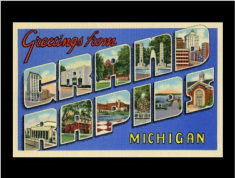 Completing the final read through of my book has been more challenging than I imagined – mostly because I want to nitpick every sentence of it. I’m beginning to understand what journalist Gene Fowler meant when he said “a book is never finished; it’s just abandoned.” I feel myself quickly approaching the point where I’ll have to put the editing tools away and push my book out of the nest. Here’s to hoping that it flies.
Despite my propensity to overanalyze every word, I managed to finish reading through chapter four a few days ago. Tentatively titled “Grand Rapids (Leaving… and Coming Home Again),” it documents our road trip’s stop in Michigan to attend Mars Hill Bible Church (famous for its now former pastor, Rob Bell). It also tells the very personal story of my relationship with the Church – puppy love as a child that gave way to heartache and anger as a college student before maturing into deep affection and devotion as an adult. I’ll be the first to admit, the journey wasn’t always pretty.
Of all the chapters in my book, I’ve dreaded having to reread this one the most. When I started writing “Grand Rapids,” over two years ago, I was under the influence of a handful of friends with low esteem for the bride of Christ. It’s embarrassing to admit now, but their thinking rubbed off on me. Before long, I found myself pointing an accusing finger at the Church, yelling along with the crowds to “crucify her!” Unfortunately, much of this indignation came through in my writing. This week, as I read through the chapter with new eyes, I was shocked and embarrassed at the degree of self-righteousness and ignorance I had shown. This chapter needed a lot of amending, and thank God, His hands have provided a much happier ending than the one I originally crafted a few years back.
There was, however, a point in my life when I came dreadfully close to turning my back on the Church. What follows below is an rough-draft excerpt from “Grand Rapids” which tells the story of my redemption and its unlikely source: a middle school retreat.
If nothing else, rereading this chapter has left me feeling eternally grateful for a God who doesn’t give up on us, even when we’re ready to turn our backs on Him.
Enjoy!
"About a month after I started church-hopping,
A close friend had asked me to chaperone a middle-school retreat with my original church.
To be honest, I said “yes” without even thinking about it;
And as the day for the trip drew closer, I began to dread it more and more.
One-hundred and fifty middle school students;
Twenty-five adult chaperones.
We were way outnumbered.
At that time I was spending every weekday teaching high school science.
That last thing I wanted to do was spend my weekend with middle school students.
The retreat was happening about an hour and a half away from our hometown.
The students would be staying in a lodge that also had an indoor water park.
Arriving at the church a few minutes late, my belongings were loaded onto a van,
And I climbed onto a bus with about seventy-five middle school boys.
The trip to the lodge was horrible.
The students were rowdy.
They were wrestling between the seats.
They were kicking each other.
I had to stop a fight more than once.
On top of all of it, they did not listen to me.
I maintained order as best I could,
But I would lying if it wasn’t overjoyed to finally see the lodge come into view.
I remember having two distinct, but related thoughts during the bus ride.
First, I had a desire to have children and raise them to be respectful,
Just to prove that it could be done.
My second thought was one of fear.
What if I had children and despite my best efforts, they turned out like the kids I was chaperoning?
It was enough to make a man consider celibacy.
Over the course of the weekend, though, I got to know the middle school students.
On the bus ride to the lodge I was just another adult.
I didn’t know their names
And they didn’t know mine.
But after spending two days with the students,
Sharing meals and hotel rooms,
We learned about each other.
We talked.
We laughed.
We rode water-slides.
The trip home was much more peaceful;
Perhaps it was because the students were tired,
Or maybe, because they knew me, they listened to what I had to say.
We returned to the church and we said our good-byes.
And an amazing thing happened that week.
I started to miss those kids.
The very ones who drove me crazy on the trip to the lodge,
Were now carved into my psyche.
It reminded me of my own days in youth group,
And the leaders and volunteers who had such a huge effect on my own spiritual growth.
At the local church I attend
While the main, corporate worship service is occurring,
Both the middle school and the high school groups have their own, separate service.
I was as surprised as anyone else, when, the next Sunday morning
I found myself driving back to the church that I had spent so much time degrading,
Just so I could see those kids.
I volunteered that Sunday in the middle-school service
And learned a valuable lesson:
The Church does not exist for me.
I am a part of the Church,
But I am not the Church.
When I was able to take my focus off myself and my disappointments,
And funnel my time and energy into loving and serving 6th – 8th graders,
I began to enjoy Sunday mornings again.
Instead of trying to figure out what the Church can do for us,
Maybe we need to figure out what we can do for the Church.
The Church does not exist for you.
You exist for it.
The Church is a collective.
It is not me,
It is not you;
It is us.
When I am disappointed with it,
When I chastise it,
When I speak ill of it,
I am actually speaking those words of discouragement about myself,
My family,
My friends
And the collective group of believers worldwide."
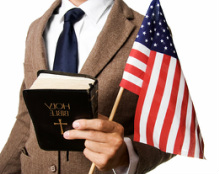 On Wednesday night, I put the finishing touches on “Chicago (Ending an Arranged Marriage),” the third chapter from my book. The next morning, I wrote in a blog that I see this as potentially being among the most controversial pieces I’ve ever written – it unpacks my thinking in regards to how a Christian should (or shouldn’t) engage with government. In a world where faith and politics are often so intertwined that it’s hard to tell where one ends and the other begins, it’s of utmost importance that believers confront this issue.
Nestled between stories of accidentally wondering into the word’s largest food festival, Taste of Chicago, and watching Forth of July fireworks over Lake Michigan, this chapter traces the history of God and government – how He set Himself up as King of His people, their eventual rebellion in choosing a human to lead them, and the dire consequences (including exile) that those rulers brought upon God’s nation. Below is a "rough copy" excerpt that traces a portion of my own journey through the oftentimes disparate world of God and government.
Thanks for reading!
My History
The first time I clearly remember hearing about politics
Was sometime during middle school,
When the news of President Clinton’s indiscretions first came to light.
I don’t remember citing any political issues or decisions regarding President Clinton;
My arguments instead focused on his moral shortcomings.
Raised in a very conservative church,
My condemnation for the president was about as heavy as a thirteen-year-old can produce.
I remember arguing for President Clinton’s impeachment during a debate at school,
Using the argument, “Once a liar, always a liar.”
My political ideals continued to grow
And were shaped by my conservative Republican upbringing.
I remember voting for George W. Bush in 2000 during a mock election at school.
What great political policy did President Bush possess that earned him my vote?
I had no idea.
But I knew he was a Christian, so he must be the right man for the job.
A Christian nation deserved a Christian leader, right?
Sadly, the passing of time, and the movement from high school to a college campus,
Did not immediately bring with it a new depth in my political thought.
The 2004 election was the first in which I could cast my vote.
I distinctly remember driving home from college
With a feeling of pride that America had given President Bush a second term.
My reasons for voting for him were not much different
Than they were when I cast my ballot in my high school’s mock election.
After my freshman year of college, thankfully,
My depth of thinking in regards to Christ dramatically increased.
I started to more diligently study my Bible,
Act on the words I found within,
And ask hard questions.
Questions such as:
What is a Christian’s response to poverty?
Can a Christian vote for a political party other than Republican?
Should a Christian vote?
As I progressed through college,
I met a girl with curly hair and a most beautiful heart –
One that, with every thump,
Beat for those suffering in the world.
She taught me about the AIDS crisis.
About genocide in Darfur.
Sex slavery in Thailand.
The use of child soldiers in Uganda.
The more I looked into my Bible,
The more increasingly obvious it became that God’s heart beat for justice –
That His eyes were watching those suffering,
And that He was on their side.
Politics then became my vehicle for social change.
I wrote letters to the president,
E-mailed my senators,
Signed petitions.
I joined peaceful protests,
Slept outside to raise awareness.
I lead a letter writing campaign.
With each official response from the White House or Congress, my hope grew.
The elected officials were hearing us.
They were going to act;
They were going to lead us into a world more in line with justice,
Freedom,
And mercy.
But, ever so slowly,
It became painfully obvious that these politicians were saying the words,
But not backing them up with actions.
No matter how many letters I wrote, the war in Darfur raged on.
No matter how many students slept outside to simulate the effects of war displacement,
Local news would not report about it.
No matter that over 250,000 people signed a petition asking for peace in Uganda,
The administration was more concerned with cheap oil and inflation.
I was twenty-four years old,
Experiencing my first taste of political cynicism.
To be honest,
It was bitter.
Flash forward to 2008,
And my next chance to vote in a national election.
Commercials spilled out of radio, TV and onto people’s front yards and cars.
Musicians and sports stars, on both sides of the political coin, asked for my vote.
Debates raged back and forth.
This time, I studied the issues;
I took the time to read up on each candidate.
I had since learned that my faith in Christ affects every part of my life,
Even my political leanings.
Election Day approached.
I had made my decision.
While the rest of the nation entered polls and waited for the results,
I stayed at home.
Why?
Because, before anything else, I am a member of the Kingdom of God.
I am a Christ-follower first.
My status as an American falls a distant second.
I must weigh every decision in that light.
Does it glorify Christ?
Does it advance the Kingdom?
If it does not, then why am I participating?
I agree with Dr. Mohler when he says that Christ-followers cannot choose disengagement.
We cannot choose to lie down and surrender.
We cannot be the ostrich burying its head in the sand.
Choosing a way other than politics, though, is not disengagement.
It is being creative.
It is looking for another Kingdom.
It is signing on the dotted line that you will be part of the solution.
How does that work?
For the majority of American voters, whether they admit it or not,
Politics exists as a form of blame-displacement.
We put our hope (and vote) behind someone who promises change,
And when they can’t deliver, we blame them.
Gas prices.
Poverty.
The economy.
Social Security.
War.
The president,
Congress,
The Supreme Court,
The other political party
Can each become the scapegoat for our social ills.
We are professionals at seeing the speck in the president’s eye
And missing the plank in our own.
We blamed the president for creating a war;
But on September 12, 2001, how many of us were ready to do the same?
We blame the president for high gas prices;
But how many of us have changed our driving habits?
We blame the president for not fixing poverty;
But when was the last time we put food in a hungry belly?
American laziness applies to our politics as well.
We do our part in electing a leader and then wash our hands of the situation.
It’s on the president now.
Do what you promised.
Change America;
I’ll be on the couch, watching TV.
The real change we need is not in the Oval Office –
It is within ourselves.
More importantly,
It is within Christ’s bride, the Church.
The body of Christ has to get active.
We’ve been given the most important task in the history of the world,
The one given by our Master:
Bringing the Kingdom of God to earth.
At the beginning of his ministry,
Christ read a list of his goals in public.
“The Spirit of the Lord is on me,
Because he has anointed me to preach good news to the poor.
He has sent me to proclaim freedom for the prisoners
And recovery of sight for the blind,
To release the oppressed,
To proclaim the year of the Lord’s favor.”
We are married to Christ.
We share in his vision.
When was the last time we offered good news to the poor
Or proclaimed freedom to the prisoners?
Have we ever offered sight to the blind
Or released the oppressed?
That work belongs to us alone.
It does not belong to the president.
It does not belong to Congress or the Supreme Court.
From where I sit,
We have failed our Master’s plan miserably.
Poverty should not be an issue;
If every believer tithed ten percent of their income, world poverty could be eradicated.
Homelessness should not be an issue;
The Church should be the home for those without one.
The global water crisis, AIDS, malaria, war, hate –
These should no longer be plagues.
Have we forgotten who we are married to?
We are the Bride of Christ.
And “nothing is impossible with God.”
The world is full of big problems, but we serve an overwhelmingly big God.
Don’t wait for your mayor to feed hungry children;
Do it yourself.
Don’t wait for the governor to allocate funds for crumbling schools;
Volunteer your time.
Don’t wait for the president to end our wars;
Make peace in your own corner of town.
If each church would start small,
The Church would stand tall and the world would change.
Forever.
By choosing not to vote,
I refused to put my name behind a system that is broken.
I refused to support a form of government that does not bring the Kingdom.
But, by choosing not to vote,
My responsibility grew.
I cannot blame another for my inaction.
I am signing on the dotted line that says I must be part of the solution
“I must,” as Ghandi said, “be the change I want to see in the world.”
No one else can be that change for me –
Not even the president.
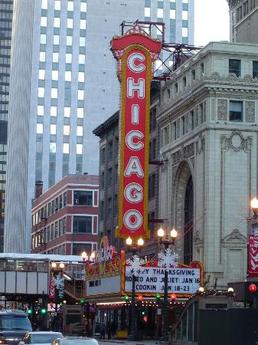 I love it when life comes full circle.
In January, my church opened its second satellite campus, this one in the town of Richmond. Because of some logistical issues, the student ministry at this campus didn’t launch until three weeks ago. Last night, I got to be a small part of their third (ever) meeting. Behind some phenomenal leadership, this group of students is taking off. You could literally see the excitement in their eyes – their contagious passion and smiles fill the room to overflowing.
After the youth group meeting, I found a Starbucks in Richmond and settled down to put the finishing touches on the next chapter in my book. (Just in case you’re in the dark, here’s the scoop: I wrote a book and I’m dedicating the month of March to getting in finalized; then I’ll try for publishing.) It took me nearly two hours, but I made it through the end of chapter three, tentatively titled “Chicago (Ending an Arranged Marriage).”
As you guessed, this chapter follows my road trip partner and I to the Windy City, the second stop on our journey. You’ll read about how we got lost in the rain and found ourselves in the hood, how we accidentally stumbled into the Taste of Chicago festival and saw a free concert by blues icon Buddy Guy, and ended our night by watching Forth of July fireworks on Navy Pier, overlooking the waters of Lake Michigan. It was an outstanding, event-filled day, but it wasn’t all about fun and games – God was teaching me an important lesson.
I’ll be honest, I expect this chapter to be controversial, as it deals with a sensitive topic: how Christians should engage with government and within the political process. The answer to that question, for me, has been a long and evolving one, and it’s thoroughly documented here. Among other things, I take time to explain why I choose not to vote, why persecution is good for the faith, and how a Roman Emperor unwittingly slowed the dramatic growth of the early church.
From my vantage point, in modern America, politics has become nothing more than a form of responsibility displacement. We elect officials to work on our behalf, doing the jobs we, as the Church, should already be taking care of – things like providing for the poor, cleaning up the environment, and working to bring about justice. When the government fails to do our job for us, we pin the blame on them. The real problem, however, is us. The Church shouldn’t be wed to a political party, a president, or a nation. She belongs, before everything else, to Christ – and her bridegroom has given us distinct directions.
Arriving home late from Richmond, I logged into Facebook to waste a few minutes before going to bed. There, a viral video caught my attention. I have been involved with the nonprofit group Invisible Children since my sophomore year of college, almost eight years ago. Their focus has been on ending Africa’s longest running civil war. For nearly twenty years, Joseph Kony led a band of rebels through Uganda, kidnapping children, forcing the boys to become soldiers and the girls sex slaves. During his reign of terror, it’s believed that Kony captured more than 30,000 African children, robbing them of their childhood and innocence. To say that he is an evil man would be a vast understatement.
Because Invisible Children has brought this issue to light, the international pressure of Kony has forced him into leaving Uganda; he now operates mostly from the jungles between the Democratic Republic of Congo and southern Sudan. While most of Kony’s kidnappings have ceased since he’s taken to the jungle, his crimes against humanity have him placed as the number one figure on the International Criminal Court’s Most Wanted List.
Unsatisfied with the world’s response to this crisis – a known war criminal remains at large – the Invisible Children group continues to press forward, this year launching their Kony Campaign. The idea is simple – use social media to make Joseph Kony a household name. When the world knows about this man and his atrocities, and cries out with one voice for justice, then governments will respond.
I’m so proud of Invisible Children and their tenacity to stick with this issue. They have been fighting this battle for nearly a decade, but have remained steadfastly focused on their goal. This is precisely that type of action I write about in chapter three of my book. Invisible Children has provided a good model for the Church: matching problems with solutions, instead of waiting for those in power to do so for us.
Normally, I’d close by posting an excerpt from my book, but tonight, I think there’s something more important for you to see. If you haven’t watched this film yet, please take thirty minutes to do so. If you have any questions, I’d be happy to answer them for you.
To borrow from Gandhi, this issue is just one way for the Church to be the change that Christ wants to see in the world.
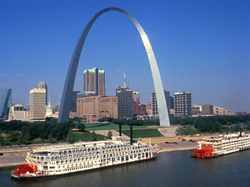 Not even a three-hour drive from the far eastern corner of Kentucky could keep me from writing last night – mostly because I was hyped up on caffeine, but also because I was excited to report some good news: the completion of stage one of March’s challenge. My close friend, Jarrod, took the time to slowly read through my entire book, fixing all grammar and spelling errors, offering feedback, and generally just making me sound smarter than I really am. I couldn’t even begin to venture a guess as to how many hours we’ve spent over the past year discussing I Repent. Suffice it to say, I owe him – big time. Stage two of March’s challenge – one last complete read-through of the entire book – is now underway. In actuality, I started stage two even before leaving for my buddy’s house on Saturday. As storm clouds gathered Friday morning, I set up shop just inside my front door and read through chapter one. Just in case you missed it, you can read a rough version of that chapter here. On the way home Sunday afternoon, I stopped in at a London Starbucks and spent more than an hour reading through chapter two, tentatively titled “St. Louis (Fixing My Vision).” As it’s name so cleverly suggests, this chapter documents the first stop on our road trip – visiting the zoo (its free!), climbing high above the city at the adult playground, walking beneath the expansive Gateway Arch, and accidentally stumbling right into the middle of a free concert by one of my favorite bands. Not bad for day one, huh? But God also had plans for this trip, one’s I could not have foreseen as I left the comforts of home behind. In St. Louis, it seemed every experience pointed back to a nagging bad habit, one I had become dangerously comfortable with: judging others. Walking around town, I couldn’t shake the feeling that God was up to something, that He was adjusting my vision. That night, as the sun set on the Mississippi River, everything came into focus; I caught a glimpse of the world through the Creator’s compassionate eyes, and in that light, every one was illuminated by His boundless love. If nothing else, I hope the readers of my book reach the end feeling that I was honest with them. Admitting to the faults of your past and allowing Christ to adjust your future is deeply personal, and at times, not very pretty. This entire book is full of those not-so-pretty-times, and this chapter, in particular, pushes some of my past demons into the light. But I’ll leave that for the print edition. At any rate, for those interested, here’s a little (unedited) excerpt for you from chapter two. Enjoy: “ Humans love to classify people. We put them in neat little boxes, Assuming we know their hearts and thoughts. We judge according to clothing. Type of car. House. Neighborhood. Family name. Job. Church. It’s a silly example, but because I have a beard, People generally assume I use drugs. It’s just part of the territory. In high school (Yeah, I had a full beard in high school) I was pulled over by the police. After making a few stops in town that night, I was driving down a very well-lit area And had neglected to turn on my headlights. No big deal, right? One cop car turned into two. Which turned into three. Which eventually led to the K9 unit arriving And a dog sniffing my car for drugs. I blame the beard. But I can’t play just the role of the mistreated. The other day, I was waiting with a crowd of strangers to catch some public transportation. The crowd was sprinkled with every type of person: A college student whose T-shirt advertised a local bar, A middle-aged woman going home from work at a fast-food restaurant, A businessman in an expensive suit with a briefcase. Looking around me, I began to make assumptions about this group. Then my eyes fell on a guy in front of me. Probably in his early twenties, he looked like he just walked out of a hip-hop music video: Baggy pants, Nice, unscuffed shoes, Flashy, designer T-shirt, Straight-billed hat. My little central Kentucky brain immediately started making inferences about him. He must be a drug dealer; Probably has a pregnant girlfriend And a gun tucked in his pants. I nervously checked for my wallet. Still there. My eyes were distracted elsewhere for a while. As they returned to this young man, Something caught my eye, something I hadn’t noticed before.While I was busy judging him, I did not notice that he was reading, Completely enthralled by a book in his hands. It was the book that I read and claimed to follow as well:
The Bible. It’s embarrassing to be so blatantly wrong. “Sorry,” I whispered – Both to Jesus And to my brother in Christ.”
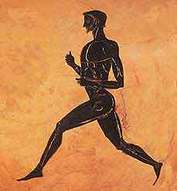 In 490 BC, under the command of King Darius I, the Persian Empire made its first attempt to invade Greece, subjugating it citizens to foreign rule. Legions of Persian soldiers crossed the Aegean Sea, landing near the town of Marathon. Feared worldwide as ruthless warriors, the Persian army seemed undefeatable. Vastly outnumbered, but prepared to fight to the death for the freedom of their homeland, the Grecian army marched down to do battle with their Persian counterparts at Marathon.
The battle started under the cover of darkness; the sun that rose the next morning shone down on a victorious Greek army, the soldiers lifting their shields in celebration. Against all odds, the Greeks had managed to hold back their Persian invaders. Viewed through the lens of history, this battle was the major turning point in the Greco-Persian wars – it convinced the Grecian army that the Persians were not invincible. Propelled by this victory, the Greeks would eventually rid themselves permanently of their would-be invaders. The centuries that followed saw the rise of classical Greek culture, whose influence on western thought is incalculable. It’s not too extreme to say, had the Persians had been victorious in the Battle of Marathon, the entire world would be different.
In the thousands of years that have followed, this battle has become associated more with a legendary half-truth than with its historical significance. The Greek historian Plutarch recorded the version of events most of us are familiar with – the story of a Greek soldier and runner, Pheidippides. After witnessing the unlikely victory at Marathon, he ran straight for Athens, intent on declaring the good news. Upon arriving, he promptly exclaimed “Nenikekamen” (we were victorious), before falling dead from the exhaustion. The distance between Marathon and Athens was about 26 miles, making Phedippides the historical inspiration for the still ever-popular marathon race.
Although the story of Phedippides is more legend than fact (I’ll let you find the truth on your own), his alleged accomplishment and shout of victory have inspired generations of athletes and at least one shoe brand (Nike, named for the Greek goddess of victory).
Driving home today, from Lynch, Kentucky, I couldn’t help but think of Phedippides. After hours of reading, analyzing, and rewriting, the late hours of Saturday night found me crossing the first finish line on my writing marathon – thanks to the untiring help of my close friend, Jarrod Sherman, the peer-editing stage of I Repent is now, for lack of a better term, in the books (admit it, that’s a great pun). I am so extremely thankful and humbled by the support Jarrod’s given me (and my book) over the course of the last year. Without his help, my dream of becoming a published author would have been lost in a maze of comma splices and spelling errors.
This is a precise timeline of what happened:
Tonight, by the grace of God, and with a little help from my friends, I find myself one step closer to my dream. Now that the peer editing is finished, my focus will turn to completing one last read-through of the entire book, chapter-by-chapter. After that, publishing.
So far, so good. Here's hoping I don't die at the end of my marathon.
|










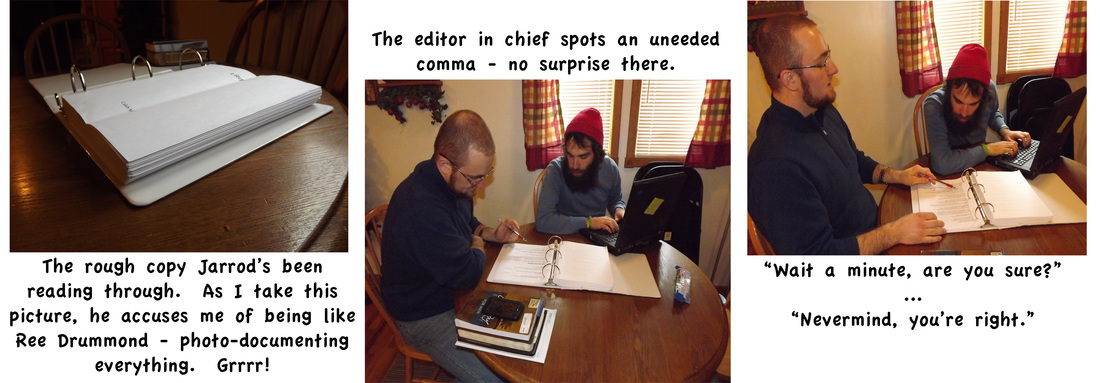
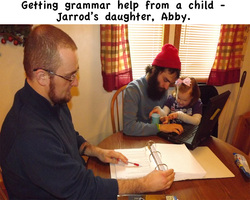
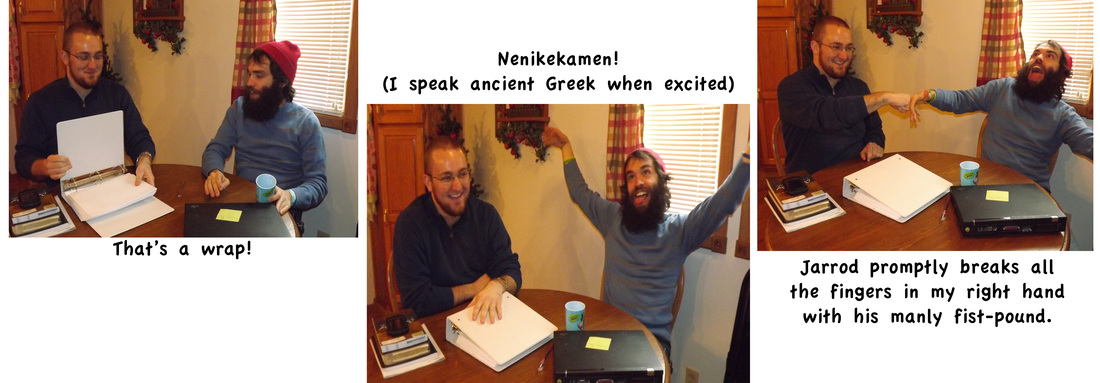
 RSS Feed
RSS Feed